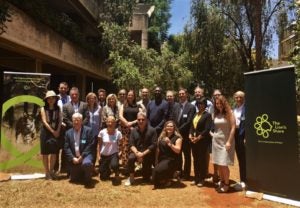MONTREAL – HSI/Canada is calling on the BC provincial government to take immediate action in stopping all ‘wildlife killing contests’ across the province and enact the necessary legislation to make any and all future contests illegal.
In wildlife killing contests, contestants pay a fee and compete for cash and prizes to see who can kill the most or the largest animals in a specified period of time. Awarding prizes for competitive and indiscriminate killing of animals is unethical and inconsistent with respecting the important role each species plays in our ecosystem.
Julie MacInnes, wildlife campaign manager for HSI/Canada, stated: “These contests permit some of the most inhumane and cruel methods to kill our iconic and sentient wildlife. These bloodlust traditions need to be banned – rather than ignored, or worse, encouraged in 2019. Wolves and cougars are critical to increasing biodiversity and maintaining healthy ecosystems.”
Wildlife killing contests are unscientific, inherently inhumane, and go against the ethics of most Canadians. In BC, 94% of residents oppose trophy hunting. In the interest of creating a more humane society, HSI/Canada urges the BC Government to react swiftly and decisively by suspending any current wildlife killing contests and to take concrete steps towards making such contests illegal.
Facts:
- In Williams Lake, until March 31, contestants can pay $20 to enter a ‘wolf-whacking contest’. As per the rules, hunters take photos of their wolf kills with time stamps or they can bring in the ‘critter’s head and hide.’ The person or team with the most kills wins the ‘grand prize.’
- In another contest, hosted by the Creston Valley Rod and Gun Club (held March 16 to 24), contestants pay a $10 entry fee and there are cash prizes for those who have accumulated the most points. Points are won depending on which of the target species is killed. Target species include wolves, coyotes, cougars and raccoons.
- To kill the most animals, participants are often encouraged to use high-tech weapons and other equipment like electronic calling devices, which lure animals in for an easy kill by mimicking the sounds of a fellow animal in distress. Hounds and GPS collars could also be used, in addition to cruel snares and traps.
- Countless animals are left injured, and dependent young may be orphaned during these events, left to die from starvation, predation or exposure. Once the prizes are awarded, the bodies of the animals are often discarded as trash.
- HSI/Canada sent an open letter to the BC government to ban wildlife killing contests, in coalition with 54 wildlife, conservation, and animal welfare specialists and organizations.
- There is growing awareness that these cruel tournaments must be outlawed across North America. In the U.S., California was the first state to institute a ban on wildlife killing contests in 2014. In 2017, Maryland placed a moratorium on cruel aquatic killing contests for cownose rays in the Chesapeake Bay. In 2018, Vermont banned coyote killing contests. In 2019, bills are currently pending to ban wildlife killing contests in the states of New York, New Jersey, Oregon, Wisconsin and New Mexico and Arizona’s wildlife agency is contemplating regulations that would ban wildlife killing contests.
Media Contact: Christopher Paré – office: 514 395-2914 x 206 / cell: 438 402-0643, email: cpare@hsi.org

